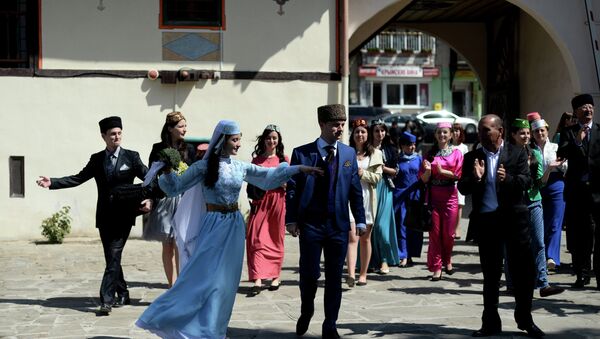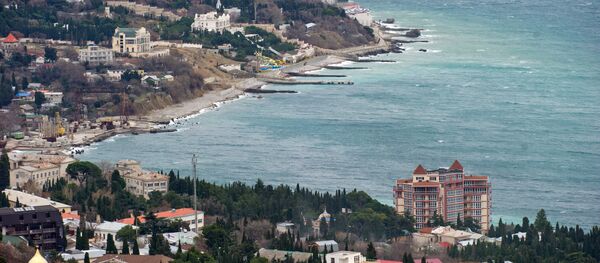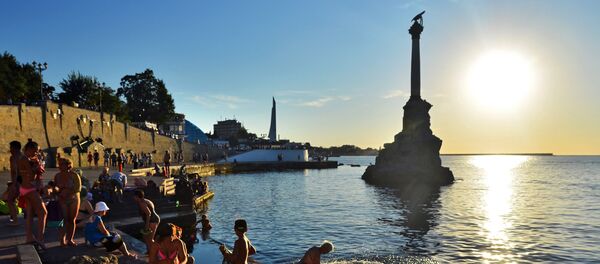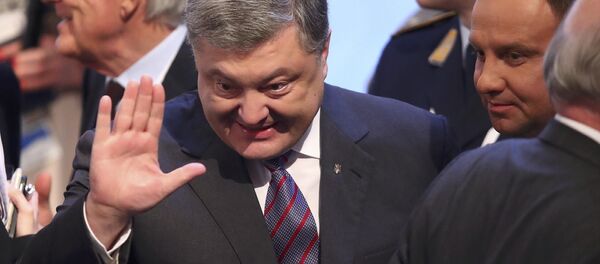Over the weekend, President Petro Poroshenko took to Facebook, where he repeated his old worn-out claim about Russia's 'aggressive occupation' of the Crimean peninsula, which he suggested had taken "millions of people hostage."
"We will not leave our fellow citizens in temporarily occupied Crimea without support," the president declared, adding that "the whole civilized world knows that Crimea is Ukraine."
Crimea broke off from Ukraine and rejoined Russia in March 2014, a few weeks after the Maidan coup rocked Kiev in February of that year. Concerned by the post-coup authorities' threats against the Russian minority, Crimean officials organized a referendum on the majority-ethnic Russian peninsula's status. With voter turnout of over 80%, more than 95% of Crimea's residents voted in favor of rejoining Russia, 60 years after the peninsula was handed to the Ukrainian Soviet Socialist Republic by Nikita Khrushchev in February 1954.
Poroshenko made his Facebook post on the eve of a government-supported rally aimed at 'showing solidarity' with Crimea's residents, particularly the Crimean Tatar community. Sunday marked the third anniversary of a rally by several thousand Tatar activists in Simferopol against pro-Russian demonstrators who had also gathered in the Crimean capital during the unrest following the Maidan coup. About 100 people turned up in central Kiev for the march Sunday.
Moreover, unfortunately for Poroshenko, recent polling by Russia's Federal Agency for Ethnic Affairs has shown that the Crimean Tatars are well on their way to integrating into Russian society, and don't need Kiev's 'solidarity'.
In a recent interview for Izvestia, agency head Igor Barinov explained that while there is certainly work left to be done to help integrate the Crimean Tatars, a great deal has already been accomplished in soothing inter-ethnic dialogue, particularly after over two decades of neglect while the peninsula was under independent Ukraine's jurisdiction.
Following the peninsula's return to Russia, the government has taken care to pay special attention to the needs of the Crimean Tatar minority, Barinov said.
"In two years, systemic socio-economic processes were launched in Crimea," the official explained. "These include making the Crimean Tatar language an official language alongside Russian and Ukrainian. The restoration of objects of cultural heritage is proceeding, including the construction of the grand mosque project. Tatar holidays have become state holidays. Schools, kindergartens and housing are being built. Last year, together with Republic head Sergei Aksyonov, we handed over the keys to 80 new flats to the representatives of people who suffered from [Stalin-era] repression."
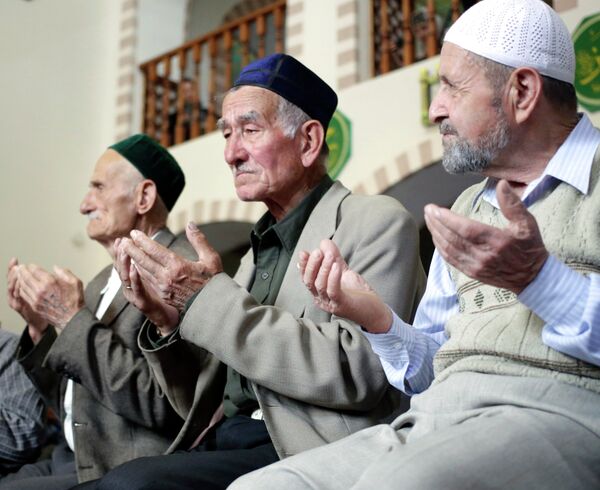
The Crimean Tatars were deported en masse from their Crimean homeland to Central Asia beginning in 1944 after being accused of collaborating with the Nazis. In the late 1980s, they began returning home, often finding their old homes occupied by Ukrainian and Russian communities that sprang up in their absence. This has led to almost a quarter century of ethnic tensions. In April 2014, shortly after Crimea's return to Russia, President Vladimir Putin signed a decree officially rehabilitating the Crimean Tatars and the other ethnicities that suffered from Stalin-era ethnic repressions in Crimea.
Naturally, Barinov noted that problems which had accumulated for many decades still remain. "Restoring the situation for a whole people, healing the historical wounds which have been inflicted is not so simple in the space of only two years. But the situation is changing for the better," the official stressed.
To illustrate, Barinov cited a few figures. "According to our most recent sociological study aimed specifically at the Crimean Tatar community, when asked the question 'If given the chance, would you like to move to another part of Crimea, another region of Russia, to Ukraine or to another country?' 0% (!) of respondents answered that they would like to move to Ukraine. 82% said that they would like to stay in Crimea. 10% said they'd like to move to another part of the peninsula. Another 2% said they are ready to move to another Russian region."
In other words, the Federal Agency for Ethnic Affairs' figures show that no matter what Poroshenko may say about his 'solidarity with Crimean Tatars', the chance to use them as a bargaining chip in Kiev's political conflict with Russia is long gone.
